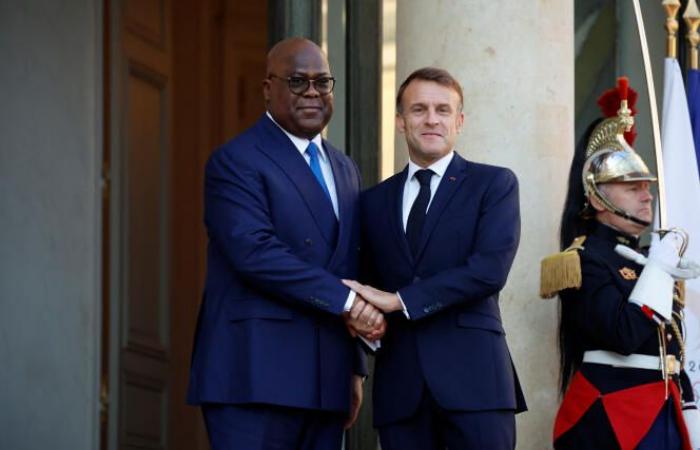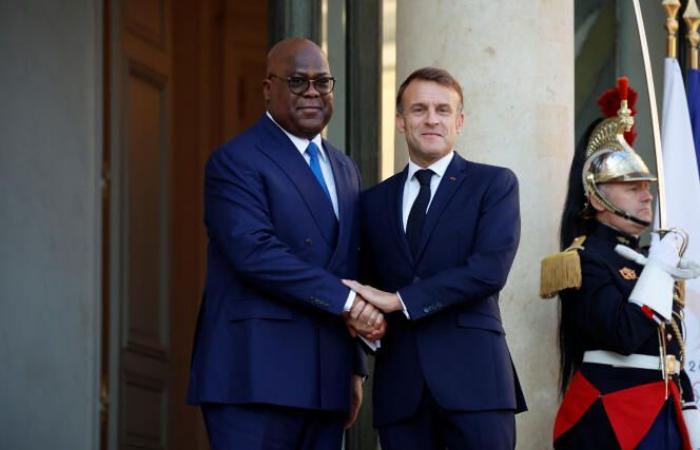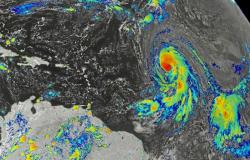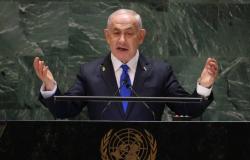It’s not in the 19th centurye Francophonie Summit, organized Friday October 4 and Saturday October 5 in Villers-Cotterêts (Aisne) and Paris, where major world issues will be debated. However, around ten African heads of state or government and several of their European, American or Asian counterparts will be present. Nor will we mention the many areas of tension in sub-Saharan Africa.
Two examples among others will illustrate the diplomatic and political weakness of this great forum which is suffering the erasure of France’s influence on the African continent. Thus, there should be no question of the chaotic transition in Guinea, placed under the increasingly heavy yoke of a military junta; nor Rwanda’s involvement in the war which, for almost three years, has tortured the populations in the east of the Democratic Republic of Congo (DRC).
Read also | In the east of the DRC, the grip of the M23 is tightening around Goma, raising fears of a “regional explosion”
Add to your selections
Certainly, the French president must meet his Congolese counterpart Félix Tshisekedi on Friday at the Elysée. Then, the next day, at the Grand Palais, the Rwandan Paul Kagame. Bilateral meetings launched by Paris, on the sidelines, and not within the confines of the Francophonie Summit, of which the two countries are members. The diplomatic ambition is also modest. “Emmanuel Macron will encourage both parties to reach an agreement as quickly as possible so that the devastating fighting in North Kivu comes to an end”indicates a source at the Elysée.
Tensions between Rwanda and DRC
A French diplomatic source specifies that the discussions led by Angolan mediation, the so-called Luanda process supported by France, are “a stop”. A direct meeting between the Rwandan and Congolese presidents is not planned in Paris. For later and elsewhere, it remains “a distant goal, achievable only if both parties take a step towards each other, which is not currently the case”adds this source. She is content to observe that “Paul Kagame and Félix Tshisekedi will be present in the same room with the other participants at the Summit, that’s already it”.
The inability of the Francophonie to influence this issue is due in particular to the DRC’s mistrust of the current secretary general of the International Organization of the Francophonie (OIF), Louise Mushikiwabo, former Rwandan minister of affairs. foreign countries (from 2009 to 2018), faithfully aligned with its president Paul Kagame. On March 20, Kinshasa openly boycotted Francophonie Day.
Christophe Lutundula, head of Congolese diplomacy at that time, recalled that in addition to being a linguistic space, the Francophonie is “a community of values such as peace, democracy, the rule of law, solidarity, equality between men and women and cultural diversity”. The minister immediately denounced “ the silence and indifference of the institutional Francophonie in the face of the aggression of the DRC by Rwanda, one of the members of the OIF, and the tragedies it has caused for three decades”describing this attitude as“inadmissible and contradictory”.
A contested general secretary
This is one of the consequences of Emmanuel Macron’s choice to elect, in October 2018, Louise Mushikiwabo at the head of the OIF, an organization with 88 members (states or provinces). “He gave this position to Rwanda to move forward on the memorial issue [lié au rôle controversé de la France durant le génocide de 1994] and appear as the one who will have picked up the pieces of a degraded relationship with Kigali”analyzes Aurélien Taché. This deputy (La France insoumise) from Val-d’Oise leads with the elected representative (La République en marche) of French people established outside France, Amélia Lakrafi, a parliamentary information mission on the Francophonie.
Read also | Article reserved for our subscribers Between France and Rwanda, an unfinished reconciliation
Add to your selections
“The rapprochement with Rwanda came at the price of renouncing a political Francophonie defending democratic values in the French-speaking area”adds a former head of one of the OIF directorates. He recalls that Paul Kagame, in power since 1994, was re-elected again in July 2024 with more than 99% of the votes. “Like Emmanuel Macron, the general secretary has a more managerial than political approach”adds Aurélien Taché.
The 19the The theme of the summit is: “Create, innovate and undertake in French”. In the eyes of the two French deputies cited above, it would also be necessary “focus on a role of political intermediation between States, particularly in crisis situations, such as in the Sahel or the DRC”.
Guinea reinstated
Concerning Guinea, the president of the transition, Mamadi Doumbouya, will not be in Villers-Cotterêts. But a certain unease accompanied the decision taken by the OIF, in mid-September, to reintegrate this West African country into its ranks. Conakry was suspended in the wake of the putsch led on September 5, 2021 by the former French foreign legion and then head of the Guinean special forces group against President Alpha Condé.
Since then, the junta he leads has increased its attacks on the media, political parties, civil society and even its brothers in arms. Oumar Sylla, alias Foniké Mengué, and Mamadou Billo Bah, two activists from the National Front for the Defense of the Constitution (FNDC), have given no sign of life since their kidnapping by soldiers on July 9. On September 25, the authorities announced, without further explanation, the death in custody of Colonel Célestin Bilivogui, who had been missing for several months.
Read also | Article reserved for our subscribers In Mali, Assimi Goïta, the “big brother” of the Sahelian putschists
Add to your selections
The three putschist countries in the Sahel – Mali, Burkina Faso, Niger – are, for their part, still suspended from the OIF. “This may appear to be a double standard but we cannot be so angry with Guinea even if it moves away from our values”slips a French diplomat. “However, it would be necessary to demonstrate that the Francophonie is no longer a tool of influence for French governments”explains Aurélien Taché. Especially, according to the MP, that French in Africa is “sometimes seen as the language of administrative elites only, or even marked by an authoritarian or colonial heritage”.
The French language under threat
Certainly, the African continent remains “the beating heart of the French-speaking world”. Il is home to 75% of the world’s approximately 100 million students educated in French. But the future is far from bright. All over the world, the use of French is being undermined by that of English. And in the African, French-speaking world, demographic growth is overwhelming educational systems which continue to become poorer.
Follow us on WhatsApp
Stay informed
Receive the essential African news on WhatsApp with the “Monde Afrique” channel
Join
It had been thirty-three years since France had organized the high mass of the Francophonie on its soil. The next Africa-France continental summit will be held in Nairobi, the Kenyan capital. “We are told that it is in English-speaking East Africa that there are business and influence opportunities for France. But, there, no one expects us there. What we need is to reinvent a French-speaking project except that it does not seem to interest the current authorities”concludes Aurélien Taché.







